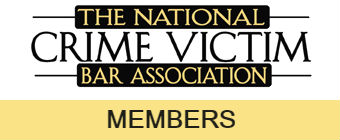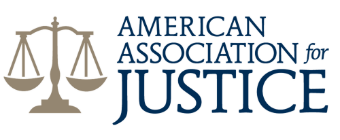Kansas' broad anti-robocall laws protect residents from unwanted telemarketing harassment. In some cases, robocall and robotext victims have the power to pursue legal action on their own behalf, filing robocall lawsuits for financial compensation.
- Receiving annoying robocalls or robotexts?
- You may be able to file a lawsuit.
- $500 to $1,500 in damages per illegal robocall or robotext
Fill out our online questionnaire to see if you qualify for a lawsuit. Our experienced attorneys are here to help. Contact us now to set up a free legal consultation.
We want to help every client build a firm foundation for their future and the future of their family.
"Great Help." Laurence has an excellent, intuitive way in the courtroom.
Millions of Americans from all throughout the country are fed up with receiving unwanted commercial robocalls from telemarketers, debt collectors, creditors, and other entities. These companies use automated dialers and prerecorded messages to send out mass amounts of calls, texts, and commercial faxes to people who never gave them permission to do so.
How To Make Robocalls & Robotexts Stop
You're likely on this page because you're looking for answers about how you can make these robocalls stop. Fortunately, a federal law called the TCPA, along with state laws in Kansas and other states, allows consumers to recover $500 to $1,500 in financial compensation for every illegal robocall, text, and fax they receive.

Our Kansas robocall lawyers are prepared to help you secure the maximum financial compensation you're entitled to.
Robocall Laws In Kansas
Kansas has a law called the Kansas No-Call Act, which sets requirements, restrictions for consumer telephone calls, along with penalties for those who violate this Act. According to this law, telephone solicitors must follow these rules, whether they're using an automatic dialer or not:
- Identify themselves and the business on whose behalf they're calling.
- Identify the purpose of the call immediately after the recipient answers the call.
- End the solicitation if the recipient indicates that they do not want to hear the sales presentation or participate in the solicitation.
- Hang up the phone (or disconnect the automated dialing-announcing device) within 25 seconds of the termination of the call by the person being called.
- A live operator or automated dialing-announcing device must answer within 5 seconds of the beginning of the call.
- Prerecorded messages may only include information related to the identity of the person calling and the business on whose behalf the call is being made. Prerecorded messages using unsolicited advertisements are prohibited.
- Telemarketers may not block their phone numbers on caller ID devices.
- Solicitors may not transmit any written information by computer to a consumer after that consumer has requested that such transmissions stop.
Because Kansas has statewide robocall laws which apply in addition to the federal TCPA law, you may have the option to file your robocall lawsuit in either federal or state court. This decision is best made after speaking about your case with an experienced Kansas robocall lawyer.


When Are Robocalls Illegal According To The TCPA?
Any call using an automated dialer or prerecorded message is illegal without the express written permission of the person being called. This means that if you did not give the specific company who called you permission to call you using these methods, that company has broken the law and you can recover $500 to $1,500 for each violation. This also applies to text messages and commercial faxes.
Express written permission can be given through paper forms, website forms, emails, telephone keypresses, or recordings of oral consent.
A prior existing business relationship is not an excuse for making robocalls, texts, or faxes without consent. There used to be an exemption for this, but that exemption was done away with after 2013 amendments to the TCPA.
Revoking Express Written Permission
However, even if you have previously given express written permission, you have the right to revoke that permission at any time, in any reasonable way. Furthermore, prerecorded messages are required to provide an automated system which allows you to revoke your consent and opt out of receiving future calls from that company.
How Can You Sue For Robocalls In Kansas?
While you're permitted to seek financial compensation for illegal robocalls on your own, it's usually best to do so with guidance from an experienced Kansas robocall lawyer. This is because although you're entitled to $500 to $1,500 for each and every illegal call, text, and fax you've received, recovering this financial compensation can be complicated.
You'll need to decide whether you should file in state or federal court, along with whether a class action lawsuit or individual lawsuit best meets your needs. These decisions are best made with guidance from a lawyer who has experience in securing financial compensation for victims of illegal robocalls.
It's also important to gather as much evidence as you can, so that you can ensure you get financial compensation for every TCPA violation you've been subjected to. We recommend compiling the following information before speaking with one of our experienced Kansas robocall lawyers in a free consultation:
- Dates and times for every call you've received, ideally through call records or screenshots
- Save text messages and commercial faxes
- Names of the companies who contacted you illegally
- The type of phone on which you received illegal calls or texts (cell phone or landline)
- Specifics about the robocalls, texts, or faxes, including:
- Was there a prerecorded message?
- Were there signs of an autodialer, such as a beep, click, or pause after you answered?
- Did you speak to a live operator at any point?
- Was an automated opt-out system provided during the prerecorded messages?
- Did you revoke your consent, yet continue to receive calls?